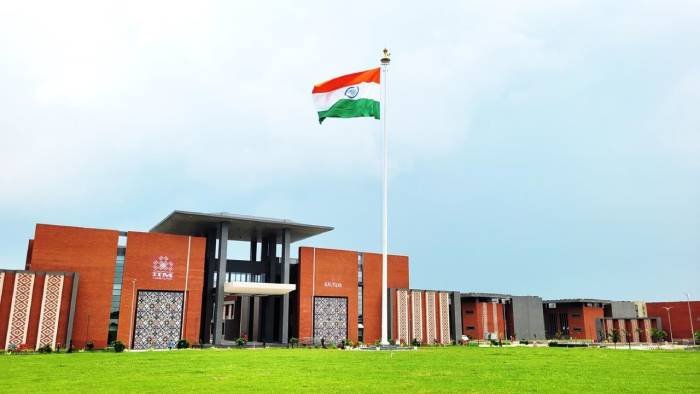
IIM Sambalpur Welcomes Inaugural MBA Business Analytics Batch with Strong Industry Experience and Engineering Edge
IIM Sambalpur has welcomed its first-ever batch of MBA in Business Analytics (MBA-BA) students, marking a significant milestone in the institute’s academic journey. The inaugural cohort brings together a blend of industry experience, academic diversity, and geographic representation, setting a strong precedent for future intakes.
A key highlight of the new MBA-BA cohort is the substantial presence of professionals with prior work experience—100% of the students have at least one year of industry exposure. This brings a practical and real-world orientation to the curriculum, ensuring students are ready to tackle today’s fast-evolving business landscape. In contrast, the flagship MBA program also remains experience-rich, with 72% of its students bringing past work experience to the classroom.
Engineering Backgrounds Remain Dominant
Engineering continues to dominate the academic profile of IIM Sambalpur’s students. Out of the 363 students admitted across both MBA programs (MBA and MBA-BA), 51.24% hold engineering degrees. Notably, in the MBA-BA batch alone, 61.70% of students are engineers, reflecting a strong preference for a technical foundation in the analytics-focused curriculum.
Interestingly, the flagship MBA program shows near-equal representation, with 50.32% of students from non-engineering backgrounds, demonstrating the institute’s inclusive admission policy that values diverse academic disciplines.
Diverse Academic and Professional Backgrounds
The newly admitted students represent a broad spectrum of academic disciplines beyond engineering. Around 20% hold commerce and accounting degrees, while 9% come from pure sciences, 8% from management, and 4% from the arts. The rest bring unique qualifications from fields such as pharmacy, agriculture, fashion technology, journalism, hotel management, shipping, law, and dentistry.
Professionally, the cohort mirrors India’s varied business sectors. The top contributors include IT and engineering services, BFSI, consulting, sales and marketing, e-commerce, and pharma and healthcare. Additionally, industries like education, legal services, FMCG, telecom, and niche domains also find solid representation, enriching classroom discussions with diverse viewpoints.
Experience Levels and Work Tenure
Among the flagship MBA students:
- 43% have 2–3 years of experience,
- 19% bring 1–2 years,
- 6% have over three years,
- And only 4% have less than one year.
In the MBA-BA batch:
- 49% have 1–2 years of experience,
- 36% have 2–3 years, and
- 15% boast 3–4 years of prior work.
This reflects a deliberate selection strategy geared towards industry-ready candidates who can apply business analytics principles with real-world context.
Gender Diversity in Focus
The overall gender distribution across both programs stands at 33% female and 67% male. The flagship MBA program is more gender-inclusive, with 38% women, while the MBA-BA batch has 5% female representation—a figure the institute may look to improve in coming years. The flagship MBA program demonstrates a noteworthy stride toward gender balance, with 38% of students identifying as women. This figure is encouraging when compared to the national average in many technical and business programs and aligns with IIM Sambalpur’s vision of empowering more women to take up leadership roles in business.
However, the MBA in Business Analytics program currently reports only 5% female representation, a stark contrast that underlines the broader challenge of gender disparity in STEM and analytics-focused fields across India.
Pan-India Representation
True to its national character, IIM Sambalpur’s incoming class hails from nearly every Indian state and union territory, including remote regions like the Andaman and Nicobar Islands. The top contributors by residence include:
- Maharashtra (13%)
- Uttar Pradesh (12%)
- Followed by Madhya Pradesh, Odisha, Delhi, West Bengal, Telangana, Rajasthan, Jharkhand, Bihar, Tamil Nadu, Kerala, and Gujarat.
Inclusivity and Accessibility
A special note goes to the institute’s inclusiveness: three students with physical and mobility impairments have been enrolled this year, showcasing IIM Sambalpur’s commitment to accessible education.
Also Read: UP Schools Go Digital: Attendance Through Mobile App Now Mandatory
Also Read: President inaugurates AYUSH University in Gorakhpur